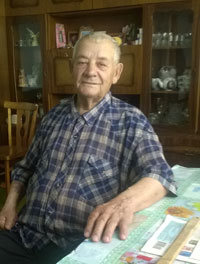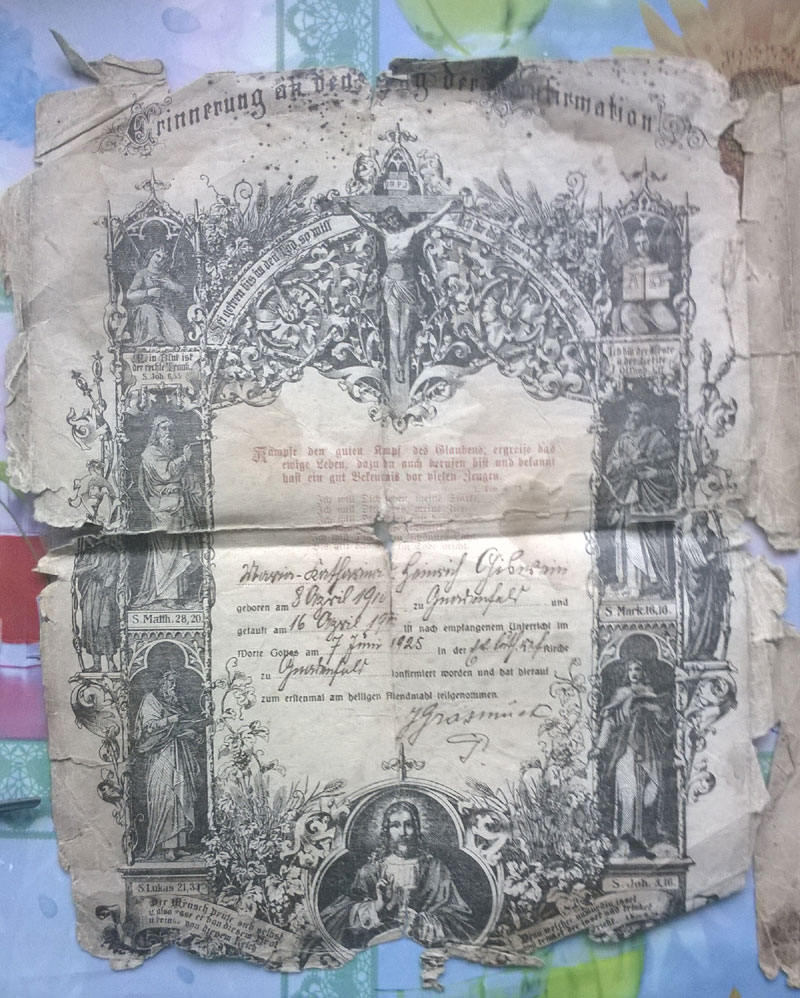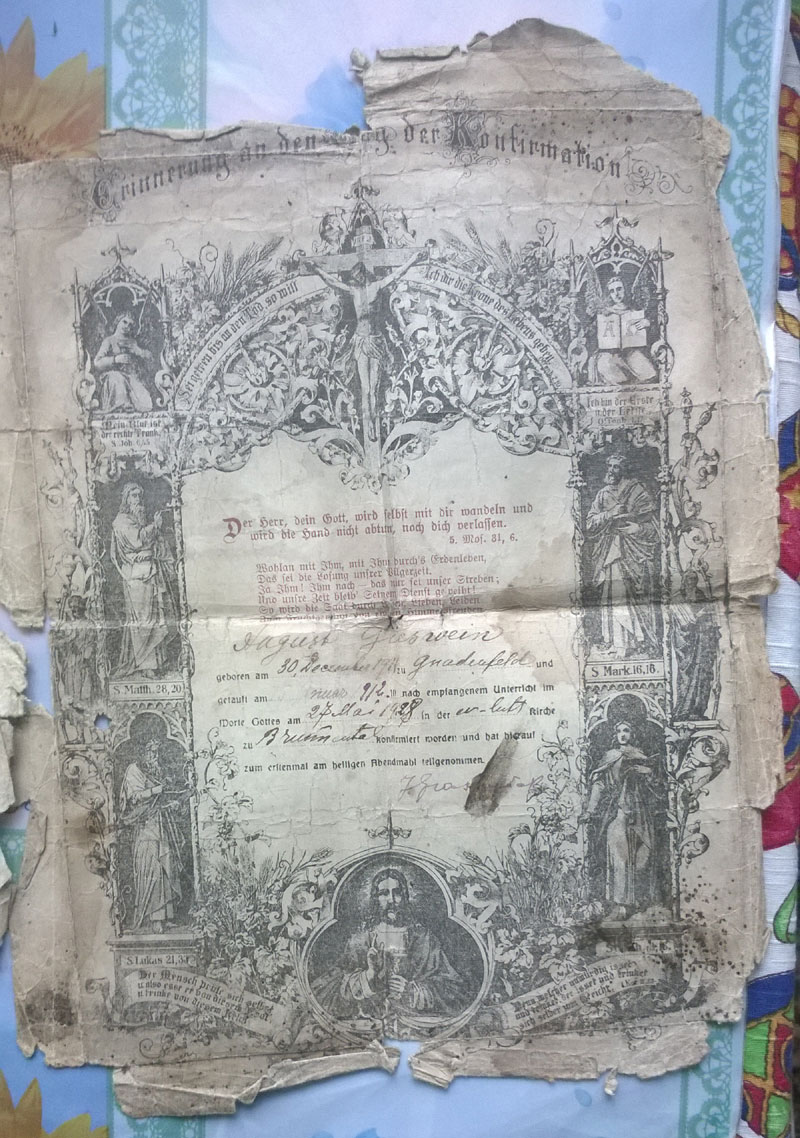









 Alexander Augustovich Gieswein was born in the hamlet of Gnadenfeld,
Krasnokut Canton, in 1931. His father, August Genrichovich, saw the light of day
in 1911, his mother, Marie-Kathrin in 1910. She had 7 sisters, among them Katja,
Maria, Amalia and Lisa, as well as two brothers named Friedrich and Andrej. Both
mother and father had the same family name. His father was a tractor driver. The
people worked in the fields, cultivated water melons and sunflowers.
Alexander Augustovich Gieswein was born in the hamlet of Gnadenfeld,
Krasnokut Canton, in 1931. His father, August Genrichovich, saw the light of day
in 1911, his mother, Marie-Kathrin in 1910. She had 7 sisters, among them Katja,
Maria, Amalia and Lisa, as well as two brothers named Friedrich and Andrej. Both
mother and father had the same family name. His father was a tractor driver. The
people worked in the fields, cultivated water melons and sunflowers.
The settlement where he lived before the deportation was made up by Germany only; lessons at school were held in German.
After they had been informed by the planned deportation, they were given enough time to pack their belongings, so that everybody managed to arrange what was absolutely necessary to take along.
They went in freight-cars. At each train station they were catered for. Food was portioned out in pails against presentation of meal tickets; they received mash, soup and bread. In one of the corners, behind a curtain, there were buckets to defecate. These buckets were emptied by opening the wagon doors (A. B.: this is strange, for the doors were barred from outside, and there was no possibility to open them during the trip. However, A.A. confirmed his statement, although we questioned him on this repeatedly).
Thus, they finally reached the river Yenisei, where they were to change for a barge, which took them all the way up to Galanino. Later they were relocated in a place called Vorokovka where they were immediately provided a two storied house, a cow, sheep and grain. The locals received them in a very friendly way and even entertained them to pine cones, which the re-settlers had never tasted before – unlike the residents of Vorokovka, who mainly offered their guests pine cones. The father in the Gieswein family worked as a tractor driver; this is why he later had to remove to Rozhdestvenskoe, for this is where the nearest machine and tractor station was situated. The commandant’s office had been organized in Rozhdestvenskoe, too. Every two months they had to go there and get registered. The work done was paid by crediting daily work units.
Later, on the 2nd January 1942, Alexander Augustovich‘s father was mobilized to the trud army in the Ural Mountains. As mentioned above, there were seven sisters in his mother’s family. Three of them were sent to Vagino, three to Chumnitsa. Since the bread-earner was missing, it was decided to reunite with the sisters in Vagino, where they then lived for more than a year. However, it was utterly impossible for them to stand the lack of comprehension, mistrust of the inhabitants of Vagino towards them, as well as the differences in mentality any longer. In most of the other cases, as already noted, the residents behaved in an adequate way towards the re-settlers. Over the years they entirely stopped to ascribe any attention to the fact that they were of a different nationality.
The Gieswein‘s were then sent to Chumnitsa, where they gradually settled in, but there well-being did not continue for long, for the mother died in 1947, and little Alexander was practically left in the family as the only „adult“. In order that the children did not have to be taken to a children’s home, they forced Sasha to draft a paper saying that he obligated himself to live with the children, until they had come of age. The mother’s sisters were not able to help a lot, so that Sasha was supposed to be the sole wage earner of the family. The adolescent worked untiringly without twiddling his thumbs, and they entrusted him not only tasks within the kolkhoz. He was also working as a postman delivering letters and handed out envelopes with financial support to widows. Later, when he was tilling the fields, little Gieswein was even entrusted the handling of various kinds of technical equipment.
In 1966, considering the fact that Alexander Augustovich Gieswein had gained a lot of experience in the organization of agricultural working, they elected him head of the „Iskra“ („spark“; translator’s note) kolkhoz the kolkhoz farm developed from the former brigade of the “New Life” kolkhoz. His wife, Emma Genrichovna Rupp was from the hamlet Alexandrov-Gai in the Saratov Region. Her father Heinrich was mobilized to the trudarmy in Reshoty.


(AB – remarks by Aleksei Babiy, Krasnoyarsk „Memorial“Organization ) Ninth
expedition of the Krasnoyarsk "Memorial“ Organization and the Pedagogic College
in Yeniseysk, Vorokovka-Kasachinskoe-Rozhdestvenskoe 2014 .